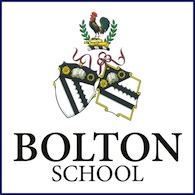One of the things that a good school focuses on is allowing pupils to understand the importance of language. Obviously, at a basic level, that means using language that is appropriate to the circumstances and not being rude. Bad language is not allowed. But bad language extends far beyond the use of a rich and exotic vocabulary of words you might not share with an elderly aunt. It extends also to the use of grammar and tense, the undue use of colloquial and idiomatic expression and extreme dialect. All have their place, so long as we know they also place us. When people hear us speak, they judge. We might not like that, but it is what happens and young people need to know. We can be proud of accent and dialect and we should be. We cannot really be proud of poor grammar or limited expression. A ‘them’ when we meant ‘those’ will catch the ear, just as an outfit will catch the eye. This might sound like something long gone by in the days of Eliza Doolittle. I think it is just as important today in determining life chances, whether we like it or not.
Language also has another role in shaping how we think about things. A word that has recently caught my ear is ‘privilege’. Over the last year to be privileged has turned from being arguably a good thing to being a bad thing. The argument goes that being privileged means someone else is not. The public discourse has taken us to a point where we do not talk about those who do not have a good education as being disadvantaged but rather those who do have one being privileged. And here language does matter. We must not shy away from talking about deficit, shortfall and inadequacy. Until we name the problem it cannot be addressed. To use the language of privilege as a problem is to potentially lose focus on what is actually wrong and do something about it.

Leave a Reply